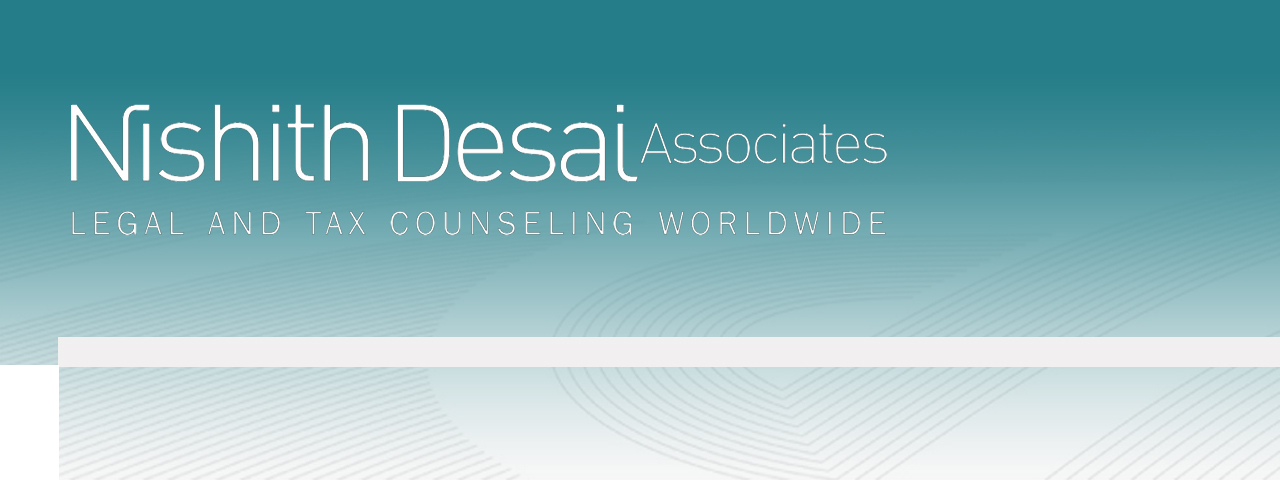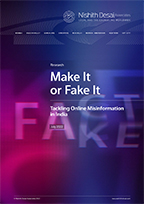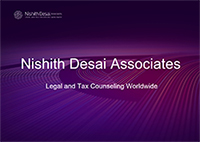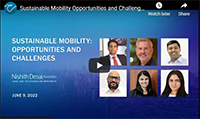Make It or Fake It
September 16, 2022
Chambers and Partners Asia-Pacific: Band 1 for Employment, Lifesciences, Tax and TMT, 2022 AsiaLaw Asia-Pacific Guide 2022: Ranked ‘Outstanding’ for Media & Entertainment, Technology & Communications, Labor & Employment, Regulatory, Private Equity, Tax Who's Who Legal: Thought Leaders India 2022: Nishith M Desai (Corporate Tax - Advisory, Corporate Tax - Controversy and Private Funds – Formation), Vikram Shroff (Labour & Employment and Pensions & Benefits) and Vyapak Desai (Arbitration) Benchmark Litigation Asia-Pacific: Tier 1 for Tax, Labour and Employment, International Arbitration, Government and Regulatory, 2021 Legal500 Asia-Pacific: Tier 1 for Tax, Data Protection, Labour and Employment, Private Equity and Investment Funds, 2021 IFLR1000: Tier 1 for Private Equity and Tier 2 for Project Development: Telecommunications Networks, 2021 FT Innovative Lawyers Asia Pacific 2019 Awards: NDA ranked 2nd in the Most Innovative Law Firm category (Asia-Pacific Headquartered) RSG-Financial Times: India’s Most Innovative Law Firm 2019, 2017, 2016, 2015, 2014 DisclaimerThe contents of this Publication should not be construed as legal opinion. View detailed disclaimer. |
|

The menace of fake news and misinformation has puzzled regulators, policy makers and industry, across the globe. With no clear definition, the question of regulation will always be a tricky one. Should every kind of misinformation be penalized, or should it be a harm-based approach? How does one mitigate its spread? How do we curb it going forward? In our recent paper, we set out to explore the potential strategies to tackle online misinformation in India. We discuss a variety of issues including what is misinformation, its magnitude and international approaches towards finding solutions. To this end, the Paper attempts to dissect the mechanics of online misinformation, and arrive at a conceptual framework for tackling various kinds of online falsehoods ranging from misinformation, to intentional and coordinated disinformation. The paper also undertakes a thorough sweep of applicable laws and policy approaches adopted in India and abroad, to identify potential gaps in the strategies adopted to fight online falsehoods. Our research reveals that a multi-pronged approach, going beyond top-down imposition of regulation, is imperative. Taking a cue from global experience, while punitive approaches do have the potential to deter misinformation, such approaches would necessarily be limited by the quality and agility of enforcement. In the context of today’s fast moving information ecosystem, both the quality and agility of enforcement may fall behind the curve in tackling online dissemination of information. Successful approaches would need to leverage technology, require the Government to reimagine its role in tackling online misinformation, and most crucially, focus on early curriculum-level interventions prioritising critical reading and awareness around online misinformation. We hope you find this paper useful. Please click here to access our paper. For any help or assistance, please email us on concierge@nishithdesai.com. Do visit us at www.nishithdesai.com.
|
Disclaimer
The contents of this hotline should not be construed as legal opinion. View detailed disclaimer.
Research Papers
Compendium of Research Papers
Clinical Trials in India
Metaverse: A New Universe
Make It or Fake It |
NDA ConnectConnect with us at events,
|
NDA Hotline |
Video
Investing In Net Zero with Mr. Jayant
Sinha
Sustainable Mobility: Opportunities
and Challenges |





